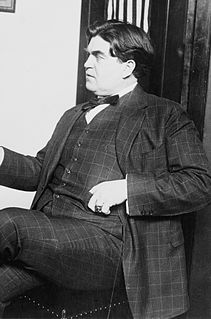A Quote by Michael Spence
Labor, no matter how inexpensive, will become a less important asset for growth and employment expansion, with labor-intensive, process-oriented manufacturing becoming a less effective way for early-stage developing countries to enter the global economy.
Related Quotes
The dynamic drives of modern economic growth, in the countries that entered the process ahead of others, meant a reaching out geographically; and the sequential spread of the process, facilitated by major changes in transport and communication, meant a continuous expansion to the less developed areas.
Since it is to the advantage of the wage-payer to pay as little as possible, even well-paid labor will have no more than what is regarded in a particular society as the reasonable level of subsistence. The lower ranks of labor will commonly have less, and if public relief were afforded even up to the wage-level of the lowest ranks of labor, that relief would compete in the labor market; check or dry up the supply of wage-labor. It would tend to render the performance of work by the wage-earner redundant.
Through much of its history, the US did not have high inequality as compared with Europe. Less so, in fact. That began to change in the industrial age, reaching a peak in 1928, after the forceful destruction of the labor movement and crushing of independent thought. Largely as a result of labor mobilization, inequality declined during the Great Depression, a tendency continuing through the great growth period of regulated capitalism in the early postwar decades.
Capital, and the question of who owns it and therefore reaps the benefit of its productiveness, is an extremely important issue that is complementary to the issue of full employment... I see these as twin pillars of our economy: Full employment of our labor resources and widespread ownership of our capital resources. Such twin pillars would go a long way in providing a firm underlying support for future economic growth that would be equitably shared.
I don't think that developing countries gained from a two-stage process. A single phase summit (which is, after all, a two year process, not a three day event) would have built awareness, and would probably have led to more substantive conclusions at the end of the first summit meeting. Civil society may have gained a bit more from the networking experience, but it was less effective at networking in the second phase.
If the American government can't stand behind the dollar, the world's benchmark currency, then the global financial system will very likely enter a new era in which there is much less trade and much less economic growth. It would be, by most accounts, the largest self-imposed financial disaster in history.
Labor, like Israel, has many sorrows. Its women weep for their fallen and they lament for the future of the children of the race. It ill behooves one who has supped at labor's table and who has been sheltered in labor's house to curse with equal fervor and fine impartiality both labor and its adversaries when they become locked in deadly embrace.




































